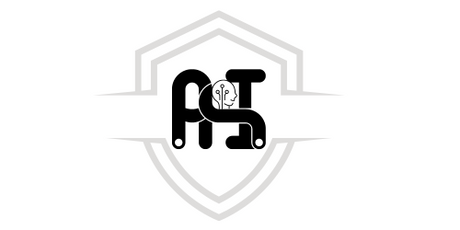What do we mean by Organizational Resilience and why implement it as a strategy? : Organizational resilience is the ability of the organization to overcome adverse circumstances and act promptly in the event of an unforeseen event. It is essential in managing changes and challenges optimally, even promoting forward-looking learning.
The development of this skill allows us to lay the foundations for the actions to be carried out to return to the state prior to the challenging situation.
Throughout the life cycle of companies, events arise that require quick and timely solutions. Resilience offers the opportunity to accept changes as part of an adaptation process.
In the current global situation of social and economic crises and financial ups and downs, this capacity must be an implicit part of organizations that intend to face adversity. The process of organizational resilience makes it possible for companies to become stronger and more solid.
Vogus, Barnett and Pratt (2000) define organizational resilience as "the attribute that they develop throughout their life cycle and by which they are able to ensure their survival in the face of crises, threats and changes that they experience within the systems of which they are part."
That said, organizational resilience is permanence based on positive changes that are generated as a consequence of challenging conditions.
While it allows us to emerge in the face of a negative event, it can also lead to strengthening and providing us with new resources.
These challenging situations include shocks, crises, scandals, tensions or interruptions in internal routines to a greater or lesser extent and always endanger the well-being of the organization.
However, resilience does not only assume the return of the company to the conditions prior to the challenging event, but also allows threats to be perceived as opportunities to generate advantages for organizational development and growth.
Organizational resilience involves imagination, modification and renewal from within the organization outwards. It also involves modernizing its systems, innovating and changing its schemes for survival.
The foundations for Organizational Resilience are:
- Knowledge of leadership and human talent.
- Technology and information management.
- The philosophy of customer-oriented business management.
Organizational resilience requires providing certain conditions such as social capital, psychological safety, distribution of command and commitment to accountability, as well as having a broad network of resources and tools.
In order to apply organizational resilience, a participatory work culture and climate must be in place, with shared values based on respect, honesty and trust.
Benefits of organizational resilience in the work environment:
- It facilitates the intellectual growth of human capital since people share knowledge.
- It better integrates information flows as people recognize their interdependence.
- It strengthens interdepartmental collaboration as people appreciate different perspectives and ideas.
- It strengthens the organization's relationship with its external environment, creating links with other actors.
It is a very common but perhaps little studied fact that adversities lead organizations and people to be resilient.
In the past, what is now known as organizational resilience was identified as change management to guide business destinies facing major challenges.
Depending on the organization's level of productivity and management capacity, the company may face different scenarios such as reinventing itself, adapting, transforming or ceasing to exist.
20% EXTRA DISCOUNT
Start today and get fully certified in the Diploma of Human Resources Management and Direction with our course
- 100% online at your own pace
- practical exercises
- Lifetime Access
- certified endorsed
Apply the coupon [DARE] and get an extra 20% discount for only 100 students. Click the button and join!
Contexts that require organizational resilience
In the corporate and business sphere, there are different changes in technology, economy, market, suppliers and customers. These will be reflected in decision-making to create new opportunities and sustainability.
Changes involve adapting and updating operational processes and strategic planning. Some even generate radical transformations in the organization's foundations, policies and production processes.
This transition process becomes a process of transition, with the condition that the active collaboration of the work team is necessary. This transition phase represents the stage in which the organization achieves the readiness to learn.
From that moment on, the actions required to overcome the complications of the environment will be carried out efficiently. In the case of those organizations that do not have all the necessary resources to face and overcome adversities, they must resort to specialized advice.
Failure to provide resources in a timely manner will have a negative effect on the work environment and motivation of employees, generating uncertainty and loss of time and money.
Any situation that has a negative effect on the organization's productivity must be taken into consideration by managers and leaders, who must have the ability to identify possible solutions.
It is the leader's responsibility to structure new actions and, together with his work group, establish the guidelines to follow.
Causes of organizational resilience
Some external causes that may represent high risks and adverse situations for the normal functioning of the organization may be caused by:
- Radical changes in government policies.
- New public legislation that may limit normal business development.
- Technological innovations in the market in terms of products and services.
- Negative economic fluctuations at national and international level.
- Modifications in the supplier network.
- Liquidation of business associations and alliances.
- Natural events and large-scale accidents.
The business and work world is not exempt from circumstances and unforeseen events that force the organization to change its course. These are opportunities to evaluate its strategies and rethink financial investment.
What is organizational resilience necessary for?
The world is constantly innovating and changing paradigms in its environment. Organizational resilience is the quality that allows us to differentiate between what happens and what we have and want to do.
With a view to driving the company above the circumstances, establishing clear criteria for action. The manager determined to turn chaos into opportunities will propose to begin an exploration in which questions such as:
- How to address this situation?
- Is the team cohesive and prepared to provide solutions?
- How can we recover as quickly and cost-effectively as possible?
- What are the risks to face?
- What are the possibilities for improvement?
- What tools do we have?
- What measures to apply?
In the transition stage, a comprehensive organizational resilience process must be established. This must be explicit, with a precise and feasible action plan. Because this capacity is developed from the verification and analysis of the company's policies.
A process of reflection and generation of new strategic actions is then necessary, where the different options for dealing with the emergency must be specified, until reaching the adaptation phase and, subsequently, the overcoming phase.
The adaptation stage in organizational resilience will be the moment in which the team successfully undertakes the strategic plan, in addition to obtaining the expected results.
This is why it requires will, precision, commitment and dedication to work together through this key stage, until achieving order and the foundations to reach the previous desired state or to achieve the new organization.
Organizational resilience is the ability to integrate different tools, resources and techniques in order to generate an optimal strategy, supported, in addition, by production processes. For this reason, it is necessary to train and prepare workers in the new measures and actions to be undertaken in order to achieve success.
Company members are key in the process of organizational resilience, therefore, they must be willing to learn and feel like an important part of the process to generate the required change.
FREE DOWNLOAD
Learn everything you need to know about Human Resources Management with this completely FREE guide that we have at your disposal.
In organizational resilience, each company will evaluate the level of benefits and development obtained. These may be:
- Redirect business management philosophy and policies towards productivity.
- Develop organizational adaptability capacity.
- Incorporate resources and techniques that facilitate producing positive change.
- Organizational learning opportunity.
- Integration of the work team.
- Generation of new skills in the leader and his work team.
- Generation of new agreements and alliances with suppliers.
- Build new business alliances.
- Produce competitive advantage in customer service and user care.
- Integrate new elements for business marketing.
- Generate a financial investment as an opportunity for development and adaptation to new organizational contexts.
- Creating the conditions for business sustainability.
- Incorporate the vision of economy and proper use of resources.
- Adjust the size and production of the organization in accordance with what it is really able to offer in an optimal manner.
Are you in a resilient organization?
Since it is a characteristic that can be analyzed, it is generally fulfilled to different degrees, that is, when thinking about resilience, the degree that this characteristic has within the organization must be identified.
It is important to understand that this condition is not static in a company; it varies depending on the crises or difficulties that arise and the consequences that are generated.
Organizational resilience can be affected by external factors, such as customers, suppliers, competitors, unions, among others. One of the relationships that is most affected is the interaction of workers, who in the end are responsible for making the decision to overcome unfavorable situations.
Organizational resilience is the process through which managers guide the organization's path and ensure a new look at learning capacity as added value. The same principle applies whether the company is private or public.
Organizational resilience presents a paradigm that recognizes and promotes, both in people and in the company, the state that must be achieved and from which to overcome the obstacles generated by unexpected events. It constitutes part of the culture and values of the organization.
For this reason, its implementation will lead to successfully overcoming transition processes, avoiding considerable losses. Having to make the decision to close or bankrupt the company can be avoided if organizational resilience is assumed as an opportunity to reinvent itself.
The resilience of an organization is directly related to the sector in which it operates. When we talk about a resilient company, we are talking about an organization that has developed strategic strategies that allow it to react quickly and effectively to unforeseen events and adverse situations.
Problems and adverse situations are always present both in a company and in personal life and it is not possible to predict when they will occur, which is why the term resilience must be taken into account. In the workplace, having the ability to overcome situations of chaos and difficulty can make the difference between success and failure. Taking these into account, it is vital to have the necessary tools to overcome difficulties and recover well-being and seek stability as soon as possible.
organizational resilience organizational resilience organizational resilience organizational resilience organizational resilience organizational resilience organizational resilience organizational resilience organizational resilience organizational resilience organizational resilience
Courses that may interest you
We recommend our courses on Wellbeing and Positive Psychology, Time Management and Productivity , and Effective Negotiation Harvard Model so that you can make the most of other skills and manage your collaborators professionally.















